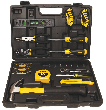Do you happen to have a growing business that needs some extensive help with the filing? Perhaps you have a hobby that has grown beyond your expectation and needs a little bit of help in getting organized once again. No matter what your need or purpose, choosing the right kind of filing software can help you out immensely. However, before you go out and purchase the first kind of software that you come across, there are a few things that you should keep in mind.
- What do you expect of filing software? Most people, when they first hear the term "filing software" tend to think of something that is used by a large library, or perhaps one of those large online legal services. While it is true that each of these are in fact a type of filing software, there are more than just these available. Keep in mind that your business will actually dictate the kind of software that you end up choosing. In addition, be aware that while filing software can be a powerful tool, it is still just that—a tool. It cannot do all of the work on its own, and will require that you do a bit of work and maintenance to keep it going.
- It should be visual and easy to use. User-friendly programs can typically ensure more accurate results when filling in the data quickly. The software should also have a somewhat intuitive feel too it so that it doesn't require a lot of extensive training to use even minimally.
- The software that you choose should also be compatible with the program your bookkeeper uses. It is possible to send and receive files electronically to and from the book keeper. Investing in compatible, or the same, financial software as the book keeper, can save time and money as there is no need to re-enter the data into his software program. The data can be presented on CD, or file transfer if you are on the same network system. A memory stick is not safe enough as it can become damaged more easily than a CD during transport.
- Ideally, filing software should also be versatile. This means that it should be able to handle things like invoices, statements, receipts, and delivery slips. Information from paper should either be typed or scanned into the system, ideally the software should be able to do both. Keep in mind though that often the accuracy of the scanned information will depend on the quality of the physical document.
As you can see, there are quite a few things to think about when considering which kind of filing software to use. However, remember that these are only guidelines, and that there is only one real rule that you need to really remember. That rule is: "If it works, use it." A system that has a proven record of working is exactly the one that you want, and the one that will be the most beneficial to you in the long run.
Author Bio
Hettie Woehler
Hettie lives in Mokopane, South Africa. She writes articles for a country-wide monthly newspaper, The Vessel. She self-published a devotional book in 1993 and writes a regular column, Hettie's Chatterbox, for the S.A. Neuromuscular Foundation. Learn more about Hettie...
Air Conditioner Cleaning
In many parts of the world air conditioners aren't simply a nice luxury, but almost a necessity. This is most especially ...
Discover More
Air Cleaning Equipment
If you happen to have severe allergies, then air cleaning equipment isn't just a nice luxury, but an absolute necessity ...
Discover More
Baking Sets
While it is great that there are all kinds of baking sets out there to chose from, it can also be a major problem trying ...
Discover More
Organizing Electronic Files
Finding space free on your computer's hard drive does not have to be difficult. Keeping electronic files organized will ...
Discover More
Organizing Expenses
Knowing how to organize your expenses is becoming more and more important as time goes by. It doesn't matter if it is ...
Discover More
Organizing Your Finances for Long-term Healthcare
Long-term healthcare is a growing reality for more and more people everyday. With the growing healthcare crisis that we ...
Discover More

Comments